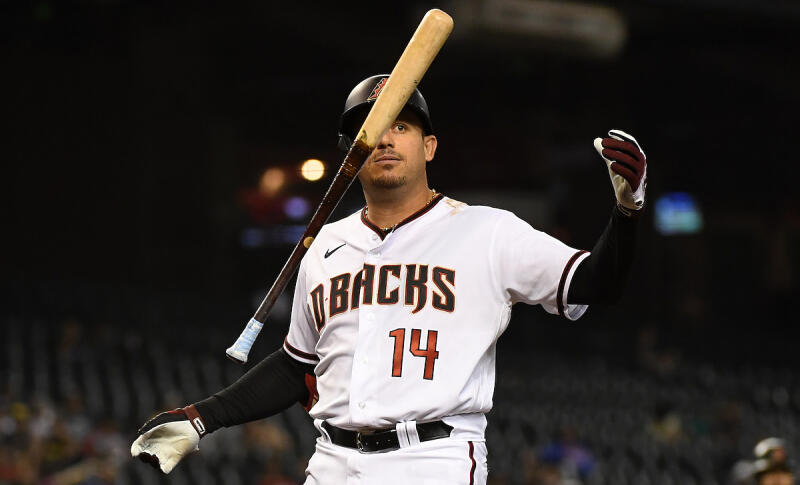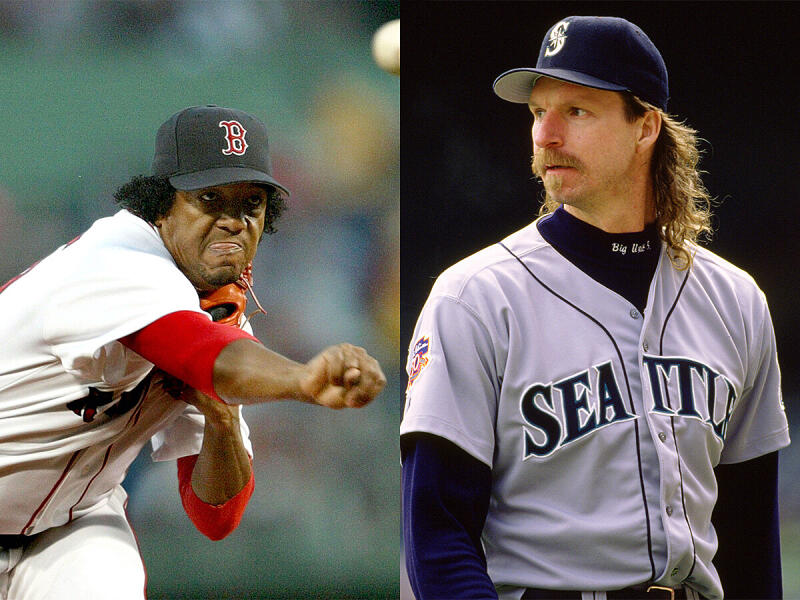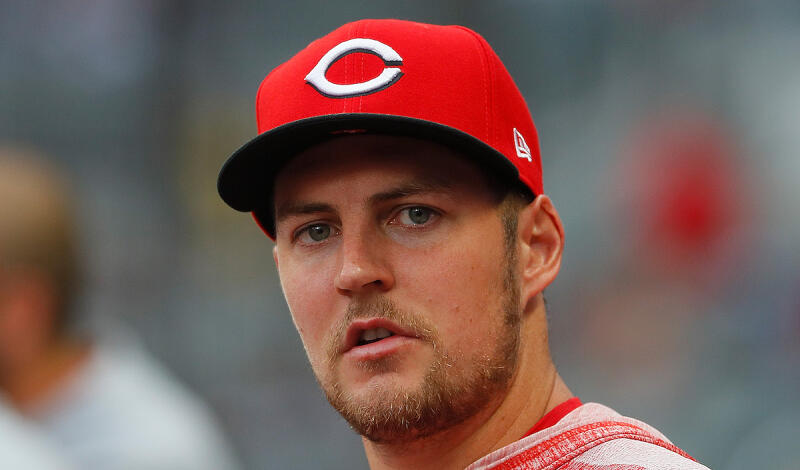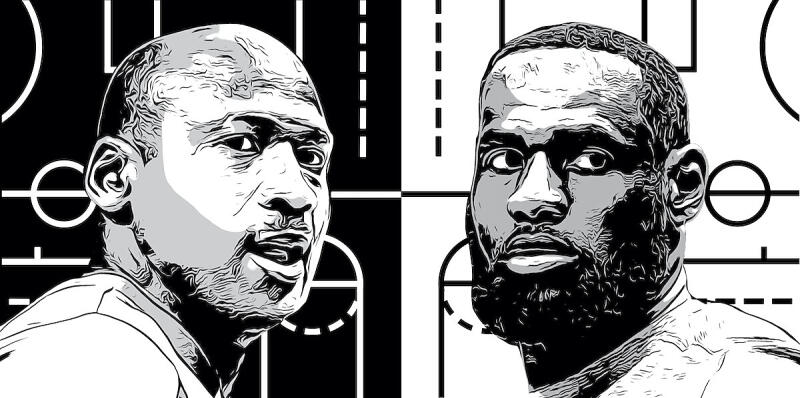Ranking the 10 Biggest Scandals in Baseball History
Every sport has seen its fair share of scandal and controversy, but it seems like baseball has experienced more than the rest. In fairness, baseball has been around longer than sports such as football and basketball, so it’s only natural that baseball bear witness to more instances of misbehavior.
It’s almost to the point that some major scandals are getting overshadowed or lost in the shuffle. But have no fear! Below, we've put everything in perspective as we rank the 10 biggest scandals in MLB history.
If you're betting on baseball this season, be sure to take a look at our MLB predictions.
READ: We Just Ranked the Worst Trades in MLB History
10. George Brett’s Pine Tar
It was only one game, and really only one at-bat, but it was a big deal at the time. On July 24, 1983, George Brett thought he hit a two-run home run to give the Royals a 5-4 lead over the Yankees in the top of the 9th inning. But that was until New York manager Billy Martin had the guts to ask umpire Tim McLelland to examine Brett’s bat. McLelland ruled that Brett had too much pine tar on his bat and nullified the home run. Brett went absolutely bananas, to put it lightly, shooting out of the dugout and arguing with McLelland with as much passion and ferocity as anyone has argued with an umpire in baseball history.
Keep in mind that at the time Brett was an eight-time All-Star on his way to being a first-ballot Hall of Famer. In other words, he was a big deal and it was major news for him to be caught breaking a rule. However, the Royals played the game under protest and won their appeal. After making things difficult, the Yankees eventually agreed to resume the game on August 18, picking things up after Brett’s home run. Oddly enough, Brett wasn’t even in attendance as the Yankees went down without a hit in the bottom of the 9th, giving Kansas City a 5-4 win
9. John Rocker and the No. 7 Train
During the 1999 season, John Rocker emerged as one of the best young closers in baseball, saving 38 games for the Atlanta Braves. Then he opened his big mouth in a Sports Illustrated article published that December. While explaining why he wouldn’t want to play for the Mets or the Yankees — because it’d involve living in New York — Rocker made some unbelievably insensitive and hurtful comments about taking the No. 7 Train of the New York subway system to get to Shea Stadium. You can look up the quote yourself, but the guy compared New York to Beirut and insulted AIDS patients, single moms, immigrants and America’s longstanding reputation as a haven for immigrants.
It got even worse when reporter Jeff Pearlman said that during the interview, which was conducted in a car, Rocker spat on a toll machine, called teammate Randall Simon a “fat monkey,” and said insensitive things about Asian women. Needless to say, there was a backlash, especially when Rocker actually had to pitch for the Braves at Shea Stadium. He also received a 28-game suspension from MLB that was ultimately reduced to 14 games. Of course, it didn’t help much because Rocker continued to run his mouth saying hurtful and bone-headed remarks until his 15 minutes of infamy eventually ran out.
8. Cardinals Hacking Scandal
Given some of the more recent scandals in baseball, this one has gotten lost in the shuffle, but it was a big deal. The St. Louis Cardinals skirted the rules using technology at the expense of the Houston Astros, which would end up being quite ironic a few years later. According to an FBI investigation, Cardinals scouting director Chris Correa successfully hacked into Houston’s player database in 2013 and 2014. During that time, he gained access to the accounts of five Astros employees, including Jeff Luhnow, who was Houston’s GM at the time, and a former member of the Cardinals' front office.
Correa was able to read emails and see Houston’s scouting reports on amateur players, as well as a list of the Astros' ratings of draft-eligible players. When this scandal came to light, the Cardinals lost their top two draft picks in the 2017 draft to the Astros. St. Louis also had to pay a $2 million fine, which was the most MLB rules would permit. Finally, Correa was sentenced to 46 months in prison for his hacking endeavors, which in a court of law were called corporate espionage.
7. Pete Rose’s Lifetime Ban
For younger fans who are too young to remember Pete Rose as a player, image if the Deflategate scandal had been enough to keep Tom Brady out of the Pro Football Hall of Fame. That’s what it’s like to not have Pete Rose in the Baseball Hall of Fame. Rose is one of just two players in baseball history with over 4,000 hits. He's also the all-time hit leader. If there were a Mount Rushmore of baseball, Rose might very well be on it.
However, the Dowd Report that was published in 1989 provided evidence that Rose bet on baseball while he was manager of the Cincinnati Reds. Rose would later confirm those allegations in his autobiography. While the Dowd Report never proved that Rose ever bet against the Reds, he was suspected of doing so despite Rose's denials. Nevertheless, MLB rules forbid betting on any game in which someone has an impact on the outcome. In the end, Rose had little choice but to accept his lifetime ban from baseball. He’s tried to weasel his way back into baseball in order to become eligible for the Hall of Fame by comparing his sins to more recent scandals.
Rose has also expressed contrition for betting on baseball. However, his remorse doesn’t change the fact that he broke a rule — and an important one — which will keep one of the game’s best players out of the Hall of Fame.
6. Pittsburgh Drug Trials
It seems like drugs have always been a part of baseball, and in the 1980s, the drug of choice was cocaine. In 1985, Pittsburgh became the focal point of MLB’s cocaine scandal after a caterer, a photographer and a mascot conspired together to sell cocaine to players, including a half-dozen Pittsburgh Pirates and several others, including stars such as Keith Hernandez, Tim Raines and Vida Blue. Keep in mind that this happened in the mid-80s after President Ronald Reagan had declared a war on drugs.
Ringleader Curtis Strong and six others were convicted of various counts of distributing cocaine in part because several players testified against them. Of course, the players testified after cutting deals that gave them immunity and allowed them to continue their careers. They agreed to perform community service, donate part of their salaries and undergo drug testing but kept on playing baseball.
Of course, the trial produced several revelations about the widespread use of cocaine in the majors. For example, Hernandez estimated that 40% of big leaguers were using cocaine while Raines admitted to sliding head-first because he kept a vial in his back pocket while playing. At the time, it was the biggest drug scandal in MLB history.
5. The Steroids Era
In retrospect, we all should have been a little suspicious about the sudden power surge in baseball. Brady Anderson, of all people, hitting 50 home runs in 1996 should have been a clue that something was up. But following the strike that canceled the 1994 World Series, baseball needed the home-run race between Sammy Sosa and Mark McGwire that captivated and won back fans in 1998. Both passed Roger Maris’ record of 61 homers, only to watch Barry Bonds, once a lean, scrawny outfielder, blast 73 homers in 2001 to take over the (un)official record.
Of course, the joy of watching all of those long balls was short-lived before widespread steroid use in baseball became public knowledge. The images of McGwire, Sosa, Rafael Palmeiro and others testify in front of Congress was nothing short of embarrassing for the game, especially as they refused to admit guilt or take responsibility.
Despite that stone-walling, Jose Canseco’s book blew the whistle on everybody. Two years later, the Mitchell Report named 89 players, including countless stars who would never be looked at the same way again. In the end, the careers of an entire generation of sluggers and a few notable pitchers (Roger Clemens, specifically) were called into question, turning future Hall of Famers into outcasts. On the other hand, steroids did bring fans back to baseball after the strike, even if the scandal did plenty of long-term damage.
4. Biogenesis
Unfortunately, the Mitchell Report wasn’t the end of the PED-related scandals in baseball. While the MLB started doing more steroid testing, those who wanted to cheat became a little more clever about the way they went about it. Biogenesis was allegedly an anti-aging clinic in Miami run by Tony Bosch, who wasn’t technically a doctor. A whistleblower within Biogenesis leaked information that the clinic was supplying PEDs, including HGH to major leaguers and teaching them when and how to take the drugs to avoid testing positive.
Similar to the Mitchell Report, names started pouring out with MLB hitting the players connected to Biogenesis with suspensions. Alex Rodriguez was by far the biggest name linked to the South Florida clinic. He appealed his suspension but eventually had it upheld and ended up having to sit out the entire 2014 season.
A-Rod and many other players had their reputations tarnished and will forever be connected to the scandal. In a way, the Biogenesis incident wasn’t as widespread or as bad as the entire steroid era. However, the fact that so many star players continued to skirt the rules and the testing system after the league took steps to get the issue under control feels worse somehow.
3. Owners Collude Against Players
In late 1985, MLB owners had an unwritten agreement with one another that they would stay away from free agents other than ones previously on their own teams. The idea was to avoid bidding wars, which would ultimately lead to longer and more expensive contracts. From the perspective of the owners, the plan worked. Things got even worse the following offseason when more star players struggled to find much interest or lucrative offers on the open market. You don’t need to be a business major to realize that this was a dirty game the owners were playing.
The Players Association fought back with three grievances between 1986 and 1988, winning each time. Unfortunately, things got ugly between the players and the owners. The collusion by the owners during the 1980s played a significant role in the players ultimately going on strike in 1994. In that sense, this was about as ugly and public as any scandal in baseball history that didn’t take place on the field.
2. Houston Astros Sign Stealing Scandal
Many years from now, it’s possible that we’ll look back and laugh a little at what the Astros were able to accomplish by banging on garbage cans. But there was nothing funny about what the Astros did when they won the World Series in 2017. During that time, there were rumors that the Astros were doing something wrong. However, it was Mike Fiers blowing the whistle on his former teammates in November 2019 that created baseball’s biggest scandal in a decade.
MLB’s investigation concluded that the Astros were using video cameras to steal signs and relay pitches to the batter at the plate. We’ll never know what would have happened if they weren’t doing that when they won the World Series in 2017. But it’s hard to imagine the Astros continuing to do it if they didn’t think it gave them an edge.
In the end, manager AJ Hinch and general manager Jeff Luhnow were suspended for a year while former bench coach Alex Cora and former player Carlos Beltran lost their managerial jobs as a result of the investigation. Houston also lost draft picks in 2020 and 2021 and received a $5 million fine. However, there is still lingering resentment from both fans and players that the Astros won a World Series and remain champions in the record books despite blatantly breaking the rules.
1. Black Sox in 1919 World Series
The only thing worse than cheating to win a World Series is purposely losing a World Series. Eight members of the 1919 Chicago White Sox purposely tried to lose the World Series against the Cincinnati Reds because they were in cahoots with gamblers who had put money on the Reds to win. The worst part is that the players were the ones who approached the gamblers just so they could earn a few bucks rather than trying to win a championship.
While the White Sox won three games in the best-of-9 series, the Reds prevailed with eight players on the “Black Sox” doing their part to throw the series.
All eight players were found not guilty in court. But MLB Commissioner Kenesaw Mountain Landis wasn’t so forgiving. He threw the book at the Black Sox and gave all eight players a lifetime ban, including star player “Shoeless” Joe Jackson, who somehow hit .375 in the World Series. Thanks to such a harsh punishment, there’s been very little concern about baseball players purposely throwing games since the 1919 Black Sox scandal, although it remains arguably the darkest moment in baseball history.
Photo: Getty Images
Our editorial content strives to be highly informative and educational to our audience, especially for visitors who are new or relatively new to analyzing and predicting sporting event results. All of our content is created by informed writers with backgrounds in their subject area and reviewed for omissions or mistakes.
Our editorial team is run by individuals with many years of experience in digital publishing, editorial, and content production. Our editorial content is always marked clearly in any instances where it may be sponsored by a third party, though it is still reviewed by our staff to ensure it remains consistent with our company mission.
- Popular
- Latest







